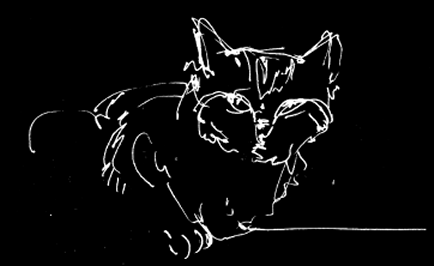"The American Psychiatric Association is updating its immense (911 pages) diagnostic manual, which offers 20 forms of bipolar disorder alone. "But it's still just a checklist of symptoms, which different physicians can interpret differently," says psychiatrist James Greenblatt, who directs the eating-disorders unit at Waltham Hospital in Massachusetts. For him and a growing number of psychiatrists, the search for a modern, objective diagnostic tool has led to the past: the electroencephalogram, first used in 1929 to record the brain's electrical activity. "EEGs let you look at patients the way cardiologists do with EKGs, focusing on physiology, not symptoms," says psychiatrist William Richardson, who is at Overlook Hospital and in private practice in Summit, N.J. Brain measurements like EEGs not only offer the possibility of better treatment for mental illness, however. They also show that the line from brain to mind can meander like a mountain stream.
For an EEG, which typically costs about $150 and takes 45 minutes, a patient has about 20 electrodes pasted to his scalp, where they measure the electrical activity of neurons—brain waves—directly beneath. In the 1980s, researchers tried to base diagnoses on EEGs, but it didn't work. The same squiggles could mean different illnesses, and one illness could be marked by different EEGs. The new use of EEGs skips the diagnosis (a label like "anxiety disorder") and goes straight to a recommended treatment. An EEG is compared with a database that includes 13,000 pairings of EEGs with which drugs helped in each case. A California company called CNS Response, which runs the database, finds a match and sends the physician an analysis indicating which drugs patients with that EEG are sensitive or resistant to.
That would be humdrum if, say, the analysis said "Prozac" for a patient with depression. But according to studies of hundreds of patients—CNS Response is launching larger trials this fall—"in some three quarters of patients the EEG database leads the physician to something he wouldn't have thought of," says CNS president Len Brandt. One middle-aged woman, for instance, suffered from depression for years, even after Richardson prescribed one antidepressant after another, marching through Wellbutrin, Cymbalta, Zoloft and more. Her EEG, it turned out, matched those of patients who had responded to Depakote, which is used for bipolar disorder and impulse-control disorders. She showed no signs of either. Yet on the drug and continued psychotherapy, her depression lifted in a week.
The EEG matches aren't perfect. For about one quarter of patients, the $500 analysis suggests treatments that work no better than what they'd already tried. It has proved most beneficial in stubborn cases and in those with no obvious first-line drug, such as eating disorders and addictions. A 16-year-old was repeatedly hospitalized for bulimia, purging up to 10 times a day despite being on the usual antidepressants, for instance. But her EEG pointed Greenblatt toward an anticonvulsant and a stimulant—not a duo anyone would have prescribed. She overcame her bulimia and is now in college.
Still, EEGs have not exactly taken psychiatry by storm. "It's a gross oversimplification to believe that the sum total of neuronal firing could give you anything worthwhile in terms of diagnosis," says Michael First of Columbia University, who is leading the team updating the diagnostic manual. "The scans are not specific for the illness." He's right: that's what those 1980s studies, trying to match symptoms to EEG, found.
But rather than being a fatal flaw, maybe it sheds light on the age-old conundrum of how brain gives rise to mind. One reason for the sometimes-odd pairings of illnesses and drugs is that many different brain states can produce the same mental symptoms, and many different symptoms can arise from the same brain state. Now replace "symptoms" with "mind." The path from electrical firings to mind is less mechanical than neuroscience dogma suggests. The mind has not yielded all its mysteries quite yet."
With Jeneen Interlandi

No comments:
Post a Comment